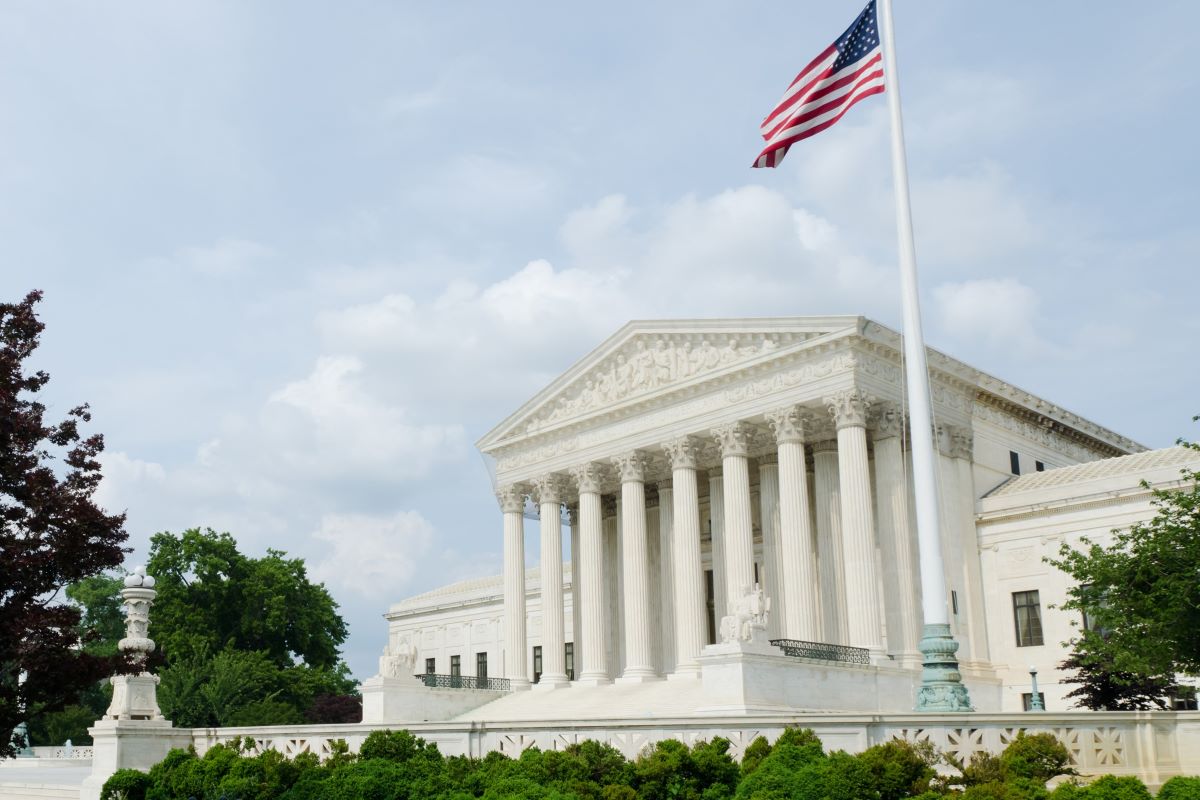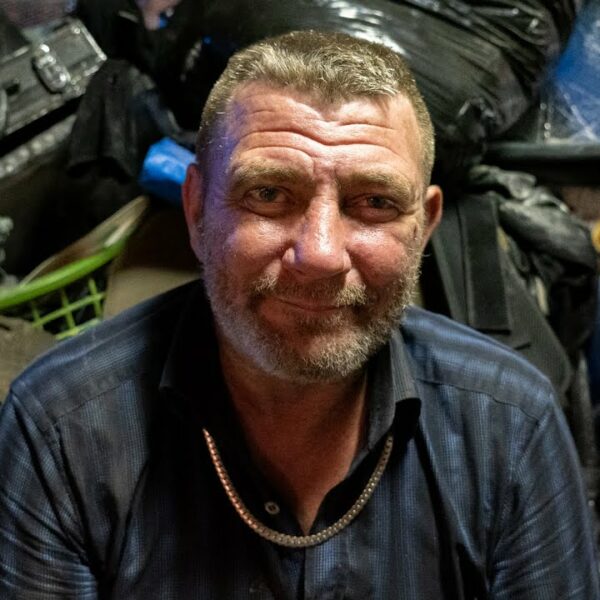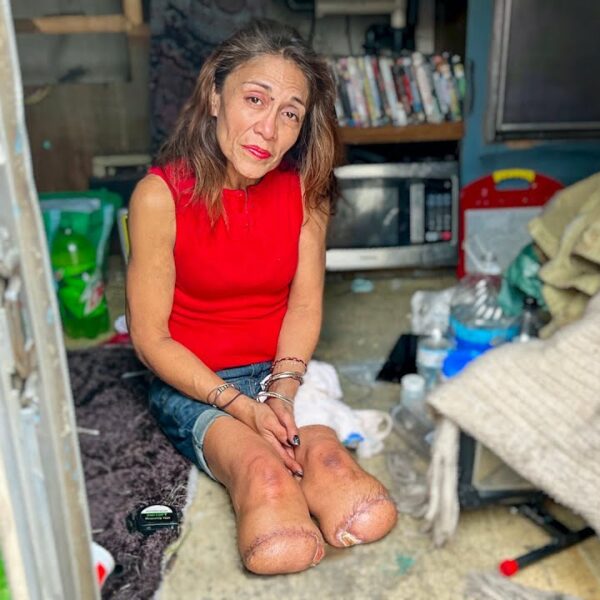A Pivotal Moment in the History of Homelessness is Unfolding, Tipping the Scales on the Criminalization Issue
Yet another shameful attempt to overturn Martin V. Boise has come into play. The outcome of this pending case, slated to be heard in April 2024, could change the legal protocol for homelessness by removing protections advocates, lawyers, and taxpayers worked diligently for years to achieve.
Homelessness is an ethical crime against humanity. Nobody deserves to be without a permanent, stable place to live, much less be forced to sleep outside in spaces deemed unfit for human habitation, such as vehicles, street corners, and tents. Sadly, when governments get involved in “solving” the homeless crisis, this often involves legally penalizing the victims.
Did you know it is illegal to be homeless in almost every state across the country? When law enforcement officials witness a homeless person publicly engaging in life-sustaining activities such as:
- Walking
- Standing
- Sitting
- Lying down and more
Some laws make it possible to cite them immediately. The only ethical clause that stands between a homeless person and a pricy, ineffective prison sentence is one court ruling – Martin V. Boise.
Martin V. Boise Overview: In September 2018, the 9th Circuit Court of Appeals Made It Illegal to Enforce Anti-Homeless Legislation Without Adequate Accommodations
In 2018, a groundbreaking case, Martin V. Boise, added an unexpected protection clause for the homeless population.
While anti-camping laws remain on the books nationwide, this court ruling deemed enforcing these laws a “cruel and unusual punishment” if adequate shelter is unavailable. Put simply, because of this ruling, police cannot arrest a person for being homeless without offering them a legitimate alternative accommodation.
Since 2018, countless reprehensible attempts to overturn the ruling have taken place. The latest of these is being presented by the city of Grants Pass, Oregon.
The City of Grants Pass Illegally Enforced Five Separate Anti-Homeless Laws
Despite the pivotal ruling of Martin V. Boise, the City of Grants Pass, Oregon, illegally enforced not just one or two but five separate anti-homeless laws. The city cited individuals for being unhoused without offering them shelter beds or any viable form of accommodation.
When the 9th Circuit pointed out these transgressions, the city doubled down, petitioning the US Supreme Court to overturn the Martin V. Boise ruling.
If Grants Pass is successful in doing so, this means homeless people will be arrested for the perceived “crime” of being homeless, even if there are no shelter beds or anyplace else for them to go. Encampment residents will be thrust into a vicious cycle between homelessness and prison, laden with hefty fines and criminal backgrounds that make it that much more difficult for them to escape homelessness.
Meanwhile, cities will have no responsibility to create permanent or temporary solutions to homelessness. They will, instead, attempt to arrest their way out of the housing crisis, a tactic with a long track record of failure.
We Must Hold Organizations Accountable for System Failures and Not Engage in Victim-Blaming Tactics
We spoke with Beth Sandor of Community Solutions about the possible broader implications of this case. She drew from her 20+ years of experience in supportive housing and community development to provide insight on the subject matter.
“At the heart of that case is just the fundamental question of whether people who have no choice but to live on the streets can be penalized for lacking a place to live,” Beth explained. “I think it underscores, for us, the real need to shift from a perspective of blaming individuals to really addressing the systemic issues of homelessness and looking at root causes and implementing real data-driven solutions.”
“This case highlights the consequences of assigning blame to people who are experiencing homelessness instead of holding our organizations and our systems accountable for not being able to meet the housing and service needs of the individuals in our community,” she told Invisible People.
Even under Martin V. Boise, governments would be able to arrest people for enduring homelessness if they did adequately address the aforementioned needs. The fact that they are so unwilling to do so shows that it is not the people enduring homelessness who are choosing to be homeless. Instead, it is people in positions of power who can’t be bothered with presenting real solutions that are choosing to impose homelessness on others.
Cruelty is the Opposition’s Entire Point
National Homelessness Law Center’s Senior Policy Director Eric Tars has firsthand experience navigating a successful appeal on the Martin v. Boise case. Unfortunately, that case is at risk of being overturned due to the Grants Pass case.
“In this case, the Eighth Amendment is a really low bar here. But, unfortunately, the city of Grants Pass wants to go under even that very low bar,” Eric said. “All the courts have said here is that you can’t punish people experiencing homelessness for something as simple as putting a blanket over themselves when there’s literally nowhere else for them to go.”
Eric draws his insight from decades of human rights litigation and advocacy, the same place from which he draws his current disappointment in the city officials who are challenging the verdict yet again.
“There’s no HUD-recognized shelter in the city of Grants Pass,” Eric explained. “And unlike some other cities which kind of try to hide the ball and pretend they don’t want to criminalize homelessness, but that somehow they just need the ‘tool’ of criminalization to address homelessness. In Grants Pass, the cruelty was the point.”
“They came right out and said they wanted to make it so uncomfortable that people experiencing homelessness in Grants Pass would have to go elsewhere. They also were at the same meeting where they were talking about this ordinance, and they were considering other methods, like creating unwanted lists of people experiencing homelessness that they would distribute to local businesses to tell them not to serve them.”
“So, this really is about just cruelty, and given what we have seen from this and other communities, we are really concerned that if the Supreme Court lets this case go forward and ultimately overturns the Ninth Circuit’s correct decision in the case, that it will set us up for even more criminalization than we are already seeing,” Eric said. “We are already witnessing the misuse of resources going towards criminal punishments rather than housing people.”
“And it’s actually going to make the problem of homelessness worse in our communities, far from the proponent’s hopes that this will make homelessness go away. In reality, it gets worse,” Eric said.
“With former President Trump running on a platform that explicitly proposes a national camping ban and the creation of homeless relocation camps that people would be forced into under threat of arrest, this could be literally paving the way for locking up any American who can’t afford the rent. As we know from a report from the Harvard Joint Housing Center, that’s more than half of all American renters now who could be at risk if they so much as put a blanket over themselves after being evicted; they could be arrested for that,” Eric explained.
“So, this poses a huge potential threat, and we’re doing all we can fight it and to not only make sure that people aren’t punished for simply trying to survive outside in the absence of any alternative but also to make sure that people use this moment of attention to remind the world that people shouldn’t have to be on the streets in the first place because everybody should have access to basic, safe, affordable housing.”
Beyond Boise: Proven Solutions to Homelessness Exist Outside of Criminalization
“I’ve been working in housing and homelessness for over 20 years,” Beth continued. “In all of that time, I have never seen any evidence that communities criminalizing homelessness has led to overall reductions in homelessness or communities being able to end homelessness.”
Instead, Beth proclaims that the key to solving the homeless crisis is communities coming together with a shared goal and a data-driven solution.
“What I have seen that has worked in communities where we have seen them end homelessness for one or more populations or drive real reductions among their unsheltered and their sheltered population is that communities have a shared goal,” she said.
“Everyone in that community is working together toward the objective of reducing homelessness by moving people into permanent housing,” she continued. “There is shared accountability across all the key stakeholders who control resources and practice, ranging from people doing direct service work up to the mayor and county executives, and everyone shares accountability for that process. Ideally, that community has real-time, person-specific data that is really helping to inform the decision-making.”
“And that’s information not just on who’s in the shelter system, but in real-time understanding who is experiencing unsheltered homelessness in our community,” Beth said. “What are their needs? How do we match the right housing and service resources to their needs? And where there are gaps in using that data to advocate for local, state, or federal funding for services or housing as needed.”
“I think that the other piece just on unsheltered homelessness, specifically in communities making progress, is really having comprehensive outreach with housing navigation.”
Tell Your Legislators You Side with Your Homeless Neighbors
One of the most unsettling aspects of this case is that other cities have backed the Grants Pass petition and challenged these vital protections for our unhoused neighbors.
We cannot afford to take any more steps backward as homelessness continues marching forward, hitting historic highs. Let your legislators know that you’re paying close attention to how they treat our nation’s most vulnerable population and that you will be voting accordingly.













